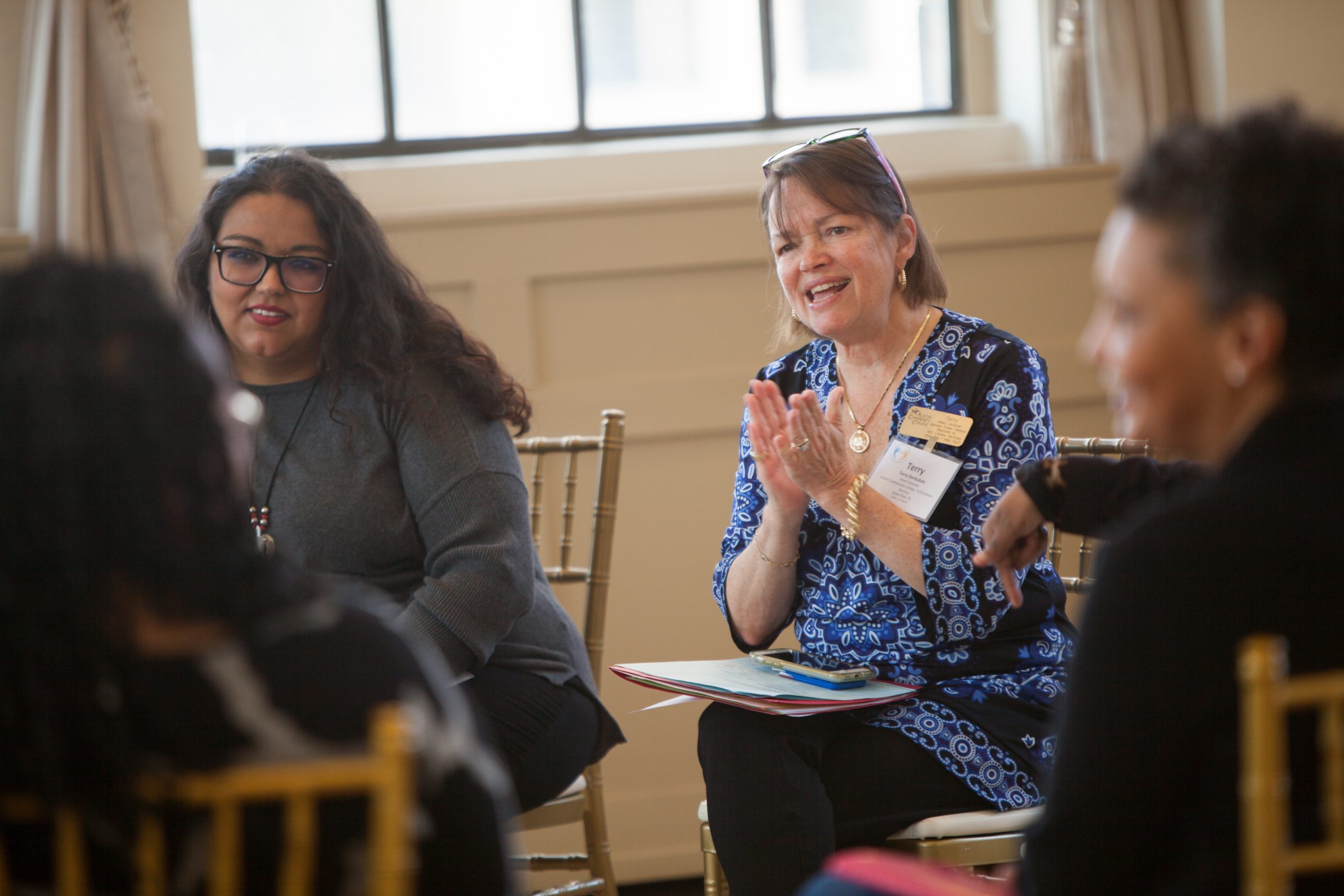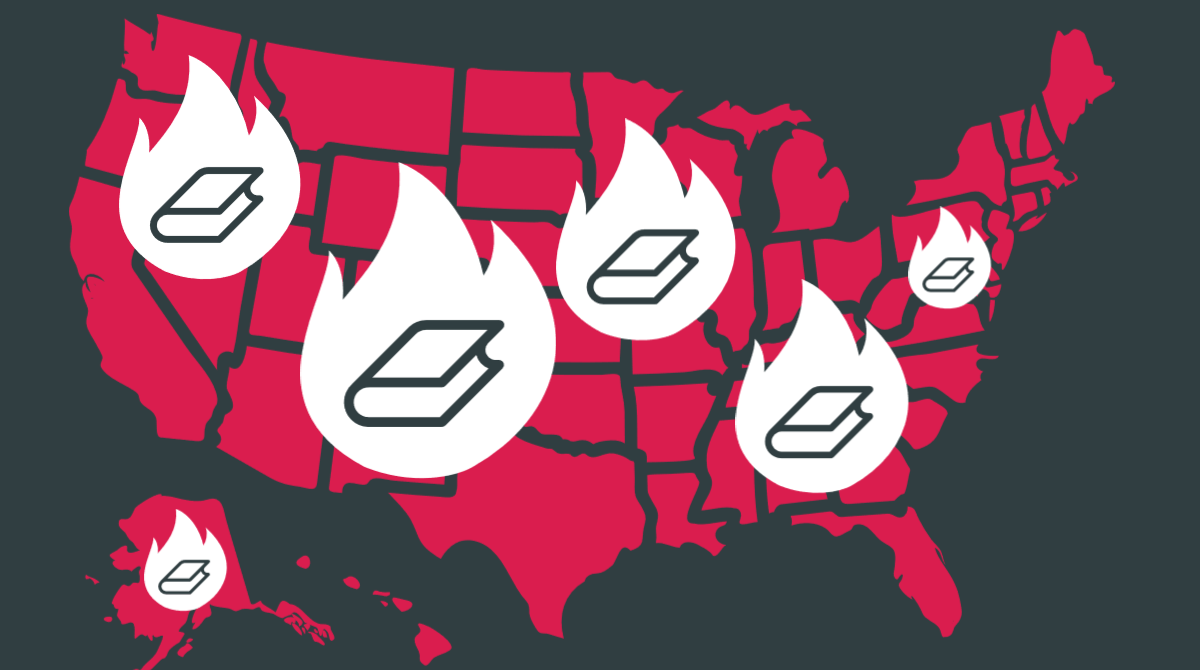Today's libraries are more than just books. From teaching critical literacy skills to promoting entrepreneurship and small business development to preserving and facilitating our community stories, an easier question might be what don't libraries do! Check out some examples of what libraries of all types are doing for their communities.
Libraries Provide Access
Libraries level the playing field. As great democratic institutions, they serve people of every age, income level, location, ethnicity, and physical ability, and provide the full range of information resources needed to live, learn, govern, and work.
Libraries have played a key role in keeping their communities connected during the pandemic by:
- providing Wi-Fi 24-7 outside of library buildings and in library parking lots;
- bringing connectivity to neighborhoods-in-need with Wi–Fi–enabled library vehicles and hotspots;
- loaning hotspots and other devices such as tablets and laptops to students, teachers, parents, job seekers, veterans, and others for home use;
- offering virtual and in-library support for the tasks that library users need to complete online;
- partnering with local government, non-profits, businesses, and other groups to identify and fill connectivity gaps.

EXAMPLE: Pottsboro Area Library in Texas placed a trailer with a Wi-Fi hotspot (pictured) in the parking lot of a local hotel through a partnership with Gigabit Libraries and the Information Technology Disaster Resource Center. The hotel is outside Pottsboro city limits, and many of the residents living in apartments nearby lack home internet access, either for economic reasons or due to a lack of broadband infrastructure.
Libraries Build Community
Libraries are community hubs. They connect people to information and connect people to people. They are safe havens for kids, providing after-school homework help, games, and book clubs. They offer computer classes, allowing older adults to stay engaged in a digital world. And library bookmobiles and community outreach programs help those living in remote areas and those who are home bound to remain connected to the world.
Public libraries also help people cope with the unexpected, particularly in the wake of natural disasters. After Hurricane Sandy in 2012, people left homeless by the storm-filled libraries in New York and New Jersey, using the library’s computers to complete federal forms and communicate with loved ones. America’s libraries also contribute to economic vitality in virtually every community across the country. With a history of bridging gaps in access to information resources and education, libraries are instrumental in helping communities tackle economic divides.

For many, library resources are an accessible way to explore entrepreneurship, build skills, and gather information that can be used to launch a new business idea, investigate a new way to earn income and make a living, or even get started with a new hobby to make extra money. Libraries offer a low-barrier way to learn and test out ideas without investing a lot up front. For some of the smallest enterprises, such as micropreneurs and solopreneurs, this is crucial.
In fact, almost 1 in 2 libraries in the US provide free services to entrepreneurs who wish to start and grow their business.1 This ranges from offering free access to market trends databases to hosting business coaching classes, providing incubation space, and in some cases, providing seed capital through business plan competitions.
EXAMPLE: Spokane County’s Small Business Boot Camp was a series of monthly workshops designed for a cohort of entrepreneurs with an added component of Entrepreneurial Mindset Training. Monthly topics included marketing, goal setting, tax basics, financial basics, branding, social media, hiring, driving traffic to websites, and a session about how to use the library’s databases for business purposes.
Libraries Build Business. (2022). The Libraries Build Business Playbook. The American Library Association.
Libraries Promote Literacy
Libraries are committed to helping children and adults develop the skills needed to survive and thrive in a global information society. The ability to read and use computers are at the forefront of these skills.
Basic, functional literacy is an essential skill for personal and professional growth. It is also essential to a full, beneficial use of a library’s services and programs. However, 32 million adults in the U.S.—14 %—cannot read, according to a study conducted in 2013 by the U.S. Department of Education and National Institute of Literacy. That same report found that 21% of adults in the U.S. read below a 5th grade level, and 19% of high school graduates can't read at all.
The implications of these statistics are alarming. Many adults cannot identify a specific location on a map, complete a job application or an insurance form, understand the instructions on a medicine bottle, or effectively help their children with homework. With a long tradition of providing resources and services for individuals who want to improve their reading and writing skills, libraries are committed to helping people enhance and improve their learning literacy skills to live a fuller life.

Libraries Protect Your Rights
Libraries are advocates for everyone’s right to read and right to privacy.
Freedom of information is fundamental to the American way of life, and it sets us apart from many countries. Libraries and librarians are committed to preserving the freedom to read to enhance learning and to ensure access to information for all.
Libraries manifest the promises of the First Amendment by making available the widest possible range of viewpoints, opinions, and ideas, so that every person has the opportunity to freely read and consider information and ideas, regardless of their content or the viewpoint of the author. Librarians are trained to curate collections that serve the information needs of everyone in their community.

Libraries across the country are currently experiencing an unprecedented spike in censorship attempts with a focus on books that address the voices and lived experiences of Black, Indigenous, people of color and LGBTQIA+ individuals.
The American Library Association documented 1,269 demands to censor library books and resources in 2022, the highest number in more than two decades. Censors targeted 2,571 unique titles in 2022, and of those titles, the vast majority were written by or about members of the LGBTQIA+ community or Black, Indigenous, and People of Color.
Subscribe to the I Love Libraries newsletter for library news and advocacy updates.
Support I Love Libraries and our efforts to promote the value of libraries and librarians.
